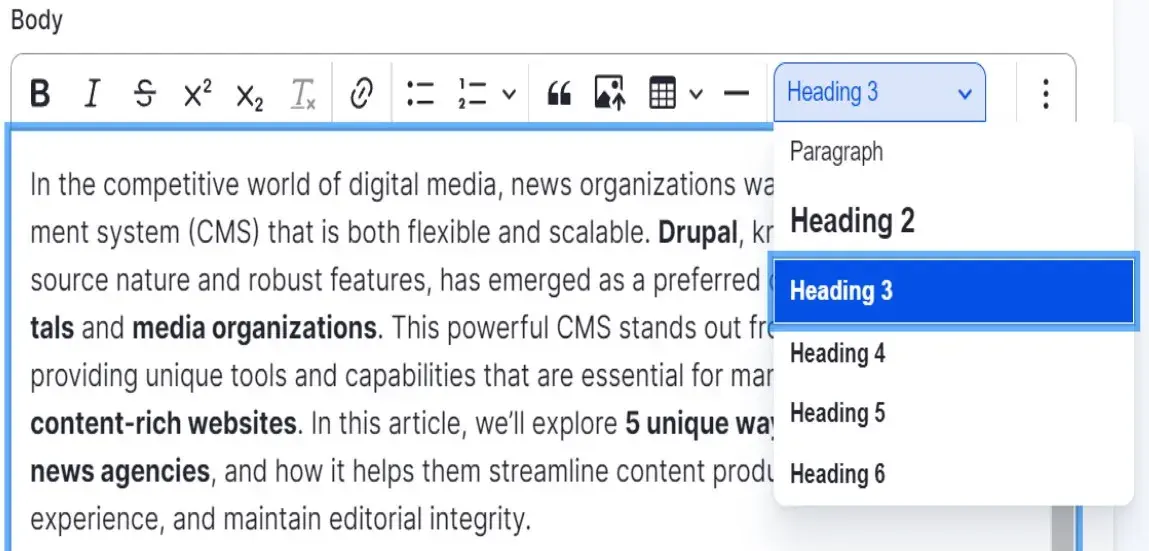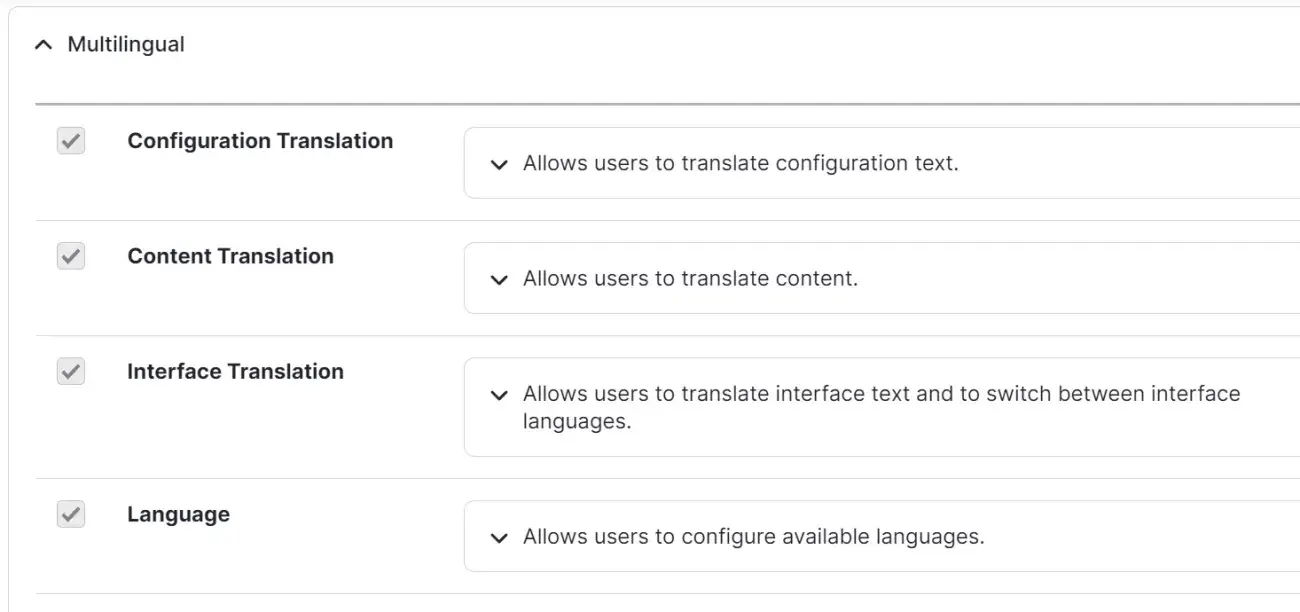10 Unique Ways Drupal Empowers News Agencies for Digital Success

In the competitive world of digital media, news organizations want a content management system (CMS) that is both flexible and scalable.
Drupal, known for its open-source nature and robust features, has emerged as a preferred choice for news portals and media organizations.
This powerful CMS stands out from its competitors, providing unique tools and capabilities that are essential for managing large-scale content-rich websites.
In this article, we’ll explore 10 unique ways Drupal attracts news agencies, and how it helps them streamline content production, improve user experience, and maintain editorial integrity.
Superior Content Management for News Agencies
Drupal is known for it's content management capabilities by providing industry leading editing tools such as Mobile first approach, CKEditor 5, Content Moderation, Multilingual, SEO friendly metatags, Comments, SEO friendly dynamic URLs, URL redirects, Content promotion to front page, Content categorization etc.
How Drupal empowers news agencies in 10 steps
1. Mobile first approach
Current generation loves technology and they want everything on their hands. So Drupal makes responsive web application by default that means it is modern and help you to target the young generation as well as works well in larger screens such as tablet and desktops.
2. CKEditor 5
CKEditor is a powerful online text editor that allows you to create and edit rich text content directly in your web browser. Think of it as a word processor but specifically designed for the web.

Drupal empowers news agencies by following key features of CKEditor:
- Formatting: You can easily apply various text styles like bold, italic, underline, and headings.
- Lists: Create numbered or bulleted lists to organize your content.
- Links: Insert hyperlinks to other websites or pages within your own content.
- Images: Add images to your text, and you can adjust their size, alignment, and add captions.
- Tables: Create tables to organize data in a structured format.
- Plugins: CKEditor has a vast library of plugins that extend its functionality, allowing you to do things like embed videos, add code snippets, or create custom buttons.
3. Content Moderation
Drupal provides Content Moderation, Workflows, and Workspace module out of the box, hence you do not need to depends on any third party plugin to moderate your content before publishing it.
What is is content moderation?
Content moderation in the news context refers to the process of reviewing and managing the content written by reporter or Jr editors by Sr editors on the news portal that includes:
- Filtering: Removing inappropriate, offensive, or harmful content.
- Fact-checking: Verifying the accuracy and truthfulness of information.
- Curating: Selecting and organizing content to ensure a high-quality user experience.
Drupal empowers news agencies by giving the opportunity to the site owner to create different transition states using Workflows core module.
Transitions can be Draft << Editor << Publish. When a content writer create a news, it will be in draft step by default.
Then editor of the site can go and perform the content verification, after all filtering, fact-check and curation steps Editor can submit the news for the final publish state and it will be visible to the end users.
4. Multilingual
Many news agencies work on local areas and they need a platform where they can publish the news in local language. Drupal has multilingual feature in it's core that means without any third party module we can turn any site into your language.
Below four modules we need to enable to make a Drupal news site multilingual.

5. SEO friendly metatags
Metatags defines metadata about a HTML page where metadata means specific information about the data that search engines can understand.
There are number of metatags that can be present to an HTML document, however we need some of them to successfully index the web page to a search engine.
Below are the examples of metadata that you can automate in Drupal so that they can have dynamic values based on your news story.
- title
- description
- keyword
- canonical
- robots
- author
6. Drupal empowers new agencies by comments feature
User engagement is the key to success in news portals. Using Comments features which is by default available in Drupal, user can submit their opinion on any news article.
7. SEO friendly dynamic URLs
Generally, dynamic content is stored on the RDMB and it identify the content based on unique IDs.
URL is a web address that you can type on browser address bar to read a webpage. Having url like https://example.com/blog/123 is not considered as a best practice.
Drupal makes it easier by Pathauto module where you can define a pattern to construct dynamic SEO friendly urls like https://example.com/blog/top-ten-drupal-hooks so that user can found it easy to remember.
8. URL redirects
Url redirects are important in SEO since they redirect a person from one URL to another. These are quite important when you need to redirect your users from one story that has been transferred from an old URL to a new URL.
It also enabled search engines to index new page addresses and display results from the new page rather than an old URL that had been relocated.
9. Content promotion to front page
This feature can be useful if you want to publish a story to home page. That means featured articles can be posted to front page without extra logic in codebase.
10. Content categorization
- Flexible Content Types: News organisations can create unique content kinds such as articles, films, infographics, and galleries. This adaptability allows them to generate rich and diverse content experiences.
- Taxonomy and Categorization: Drupal's taxonomy system allows news portals to categorize information into divisions such as politics, sports, and entertainment, making it easier for viewers to traverse.
Conclusion: Drupal's Advantage in the Digital News Industry
The combination of Drupal's extensive content management features, scalability, and flexibility makes it stand out as a content management solution for news organizations.
Drupal provides the tools and capabilities that media firms require to thrive in the rapidly evolving digital ecosystem of today, from managing editorial processes to organizing high-traffic events and providing localized content.
Drupal may be the revolutionary tool that enables you to accomplish your objectives as a news organization seeking to improve your online visibility.
Drupal's strong multilingual capabilities, scalability, and customization choices make it easy to understand why it remains a popular choice for news websites throughout the globe.